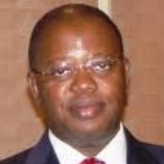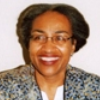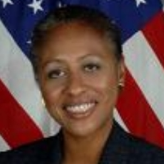Gabon
Occupying an area approximately as large as the state of Colorado, Gabon is a coastal country in the west of Africa. Considered one of the more prosperous sub-Saharan African countries, Gabon relies heavily on the export of natural resources including oil, manganese, iron, and wood. The population is largely tribal, with approximately 41 living language spoken throughout the country. The earliest settlers were the Pygmy people, who were overwhelmed by Bantus tribes. Gabon was conquered by the Portuguese, and then colonized by the French and the Dutch. Earning its independence in 1960, the country went through several decades of political changes, moving from a two-party to one-party to multi-party system. Now, the country’s primary foreign influence in culture and language is French.
Lay of the Land: Gabon occupies an area of 267,667 sq. km. (103,347 sq. mi.), which is roughly equivalent to the size of Colorado. Its capital is Libreville (pop. 673,995), and its topography comprises narrow coastal plains and a hilly, heavily forested interior (about 80% forested). There are some savanna regions in east and south. The climate is hot and humid all year, with two rainy and two dry seasons.
Gabon was originally settled by the Bantu ethnic group which arrived in the area while escaping from enemies or while scouting new land on which to settle. Portuguese traders were the first westerners to have contact with the Bantu. They arrived in the 15th Century, naming the country “Gabao” after the Portuguese word for a coat with a sleeve and hood, which was said to resemble the shape of the Komo River Sanctuary.
Relations between Gabon and the United States began on August 17, 1960, when Alan W. Lukens presented his credentials as Chargé d'Affaires ad interim. W. Wendell Blancke became the country's first non-resident ambassador on January 13, 1961, and the embassy in Libreville was established Mar 20, 1961, with Walker A. Diamanti as Chargé d'Affaires ad interim.
In September 2002, then-Secretary of State Colin Powell visited Gabon in order to highlight environmental protection and conservation in the Central African region. In 2004, President Bongo visited the White House.
From 2004 to 2008, American imports from Gabon were dominated by crude oil, by far the largest purchase between the two countries. The US has averaged buying approximately $2.2 billion in oil each year from Gabon. After oil, the top imports were miscellaneous nonferrous metals (primarily manganese), increasing from $28.2 million to $85.2 million, natural rubber and similar gums rising from $0 to $2.8 million; lumber and wood, increasing from $1.2 million to $1.5 million,; and railway transportation equipment moving up from $0 to $137,000.
Wasted Spending for US Embassy
The State Department reports that Gabon's human rights record remained poor.
Note: Alan W. Lukens (resident at Brazzaville) presented credentials as Chargé d'Affaires ad interim, Aug 17, 1960. During Blanke's tenure as non-resident Ambassador, the Embassy in Libreville was established Mar 20, 1961, with Walker A. Diamanti as Chargé d'Affaires ad interim.
 Moussa-Adamo, Michael
Moussa-Adamo, Michael
The latest ambassador from the African nation of Gabon is a longtime public servant who spent his twenties in Boston, Massachusetts; Washington, DC; and Phoenix, Arizona; both as a college student and an early career professional. Michael Moussa-Adamo presented his credentials to President Barack Obama as ambassador of Gabon to the United States on September 9, 2011.
- Table of Contents
- News
- Overview
- Basic Information
- History
- Newspapers
- History of U.S. Relations with Gabon
- Current U.S. Relations with Gabon
- Where Does the Money Flow
- Controversies
- Human Rights
- Debate
- Past Ambassadors
- Ambassador to the U.S.
- Embassy Web Site in the U.S.
- Comments
- Leave a comment
U.S. Ambassador to Gabon

The West African nation of Gabon and the island nation of São Tomé & Príncipe will soon have a new representative from the United States. Nominated September 12, Cynthia H. Akuetteh is deputy assistant secretary in the Bureau of African Affairs at the Department of State, a position she has held since 2012. If confirmed by the Senate as expected, Akuetteh would succeed Eric D. Benjaminson, who has served in the post since December 2010.
Born circa 1948, Akuetteh (née Cynthia Archie) graduated from Western High School in Washington D.C. in 1966. She earned a B.A. from C.W. Post College of Long Island University in 1970 and an M.A. in National Security Resource Policy from the Industrial College of the Armed Forces (now the Dwight D. Eisenhower School for National Security and Resource Strategy) at the National Defense University. She also completed two years of graduate course work at Columbia University from 1971 to 1973.
Prior to joining the Foreign Service in 1984 as an economic officer, Akuetteh was deputy director of the Peace Corps program in Ghana. Early career overseas postings included Niamey, Niger; Dar-es-Salaam, Tanzania; and service as a trade policy officer at the U.S. embassy in Ottawa, Canada. In Washington, DC, Akuetteh served as deputy division chief in the Office of Bilateral Trade Affairs and as economic/commercial officer in the Bureau of Economic Affairs; senior Venezuela desk officer in the Bureau of Western Hemisphere Affairs; international economist in the Office of Economic Sanctions, and international economist in the Office of Energy Policy.
From 2004 to 2005, Akuetteh was deputy director in the Office of Economic Policy Staff for the Bureau of African Affairs, where she focused on the Africa Growth and Opportunity Act (AGOA) and other trade issues.
Akuetteh then served two straight stints as embassy deputy chief of mission, first at the embassy in Ouagadougou, Burkina Faso, from 2005 to 2007, and then at the embassy in Abidjan, Côte d’Ivoire, from 2007 to 2009.
From 2009 to 2011, Akuetteh was the director in the Office of Central African Affairs, and from 2011 to 2012, she was the director in the Office of Europe, Middle East and Africa in the Bureau of Energy Resources.
Akuetteh is married to Nii Akuetteh, a Ghanaian-born policy analyst and activist who founded the Democracy and Conflict Research Institute in Accra, Ghana, and is executive director of the Scholars Council of the TransAfrica Forum. They have a daughter, Nueteki Akuetteh, who is vice president of Global Operations for Young Professionals in Foreign Policy.
-Matt Bewig
morePrevious U.S. Ambassador to Gabon

Occupying an area approximately as large as the state of Colorado, Gabon is a coastal country in the west of Africa. Considered one of the more prosperous sub-Saharan African countries, Gabon relies heavily on the export of natural resources including oil, manganese, iron, and wood. The population is largely tribal, with approximately 41 living language spoken throughout the country. The earliest settlers were the Pygmy people, who were overwhelmed by Bantus tribes. Gabon was conquered by the Portuguese, and then colonized by the French and the Dutch. Earning its independence in 1960, the country went through several decades of political changes, moving from a two-party to one-party to multi-party system. Now, the country’s primary foreign influence in culture and language is French.
Lay of the Land: Gabon occupies an area of 267,667 sq. km. (103,347 sq. mi.), which is roughly equivalent to the size of Colorado. Its capital is Libreville (pop. 673,995), and its topography comprises narrow coastal plains and a hilly, heavily forested interior (about 80% forested). There are some savanna regions in east and south. The climate is hot and humid all year, with two rainy and two dry seasons.
Gabon was originally settled by the Bantu ethnic group which arrived in the area while escaping from enemies or while scouting new land on which to settle. Portuguese traders were the first westerners to have contact with the Bantu. They arrived in the 15th Century, naming the country “Gabao” after the Portuguese word for a coat with a sleeve and hood, which was said to resemble the shape of the Komo River Sanctuary.
Relations between Gabon and the United States began on August 17, 1960, when Alan W. Lukens presented his credentials as Chargé d'Affaires ad interim. W. Wendell Blancke became the country's first non-resident ambassador on January 13, 1961, and the embassy in Libreville was established Mar 20, 1961, with Walker A. Diamanti as Chargé d'Affaires ad interim.
In September 2002, then-Secretary of State Colin Powell visited Gabon in order to highlight environmental protection and conservation in the Central African region. In 2004, President Bongo visited the White House.
From 2004 to 2008, American imports from Gabon were dominated by crude oil, by far the largest purchase between the two countries. The US has averaged buying approximately $2.2 billion in oil each year from Gabon. After oil, the top imports were miscellaneous nonferrous metals (primarily manganese), increasing from $28.2 million to $85.2 million, natural rubber and similar gums rising from $0 to $2.8 million; lumber and wood, increasing from $1.2 million to $1.5 million,; and railway transportation equipment moving up from $0 to $137,000.
Wasted Spending for US Embassy
The State Department reports that Gabon's human rights record remained poor.
Note: Alan W. Lukens (resident at Brazzaville) presented credentials as Chargé d'Affaires ad interim, Aug 17, 1960. During Blanke's tenure as non-resident Ambassador, the Embassy in Libreville was established Mar 20, 1961, with Walker A. Diamanti as Chargé d'Affaires ad interim.
 Moussa-Adamo, Michael
Moussa-Adamo, Michael
The latest ambassador from the African nation of Gabon is a longtime public servant who spent his twenties in Boston, Massachusetts; Washington, DC; and Phoenix, Arizona; both as a college student and an early career professional. Michael Moussa-Adamo presented his credentials to President Barack Obama as ambassador of Gabon to the United States on September 9, 2011.
Comments
U.S. Ambassador to Gabon

The West African nation of Gabon and the island nation of São Tomé & Príncipe will soon have a new representative from the United States. Nominated September 12, Cynthia H. Akuetteh is deputy assistant secretary in the Bureau of African Affairs at the Department of State, a position she has held since 2012. If confirmed by the Senate as expected, Akuetteh would succeed Eric D. Benjaminson, who has served in the post since December 2010.
Born circa 1948, Akuetteh (née Cynthia Archie) graduated from Western High School in Washington D.C. in 1966. She earned a B.A. from C.W. Post College of Long Island University in 1970 and an M.A. in National Security Resource Policy from the Industrial College of the Armed Forces (now the Dwight D. Eisenhower School for National Security and Resource Strategy) at the National Defense University. She also completed two years of graduate course work at Columbia University from 1971 to 1973.
Prior to joining the Foreign Service in 1984 as an economic officer, Akuetteh was deputy director of the Peace Corps program in Ghana. Early career overseas postings included Niamey, Niger; Dar-es-Salaam, Tanzania; and service as a trade policy officer at the U.S. embassy in Ottawa, Canada. In Washington, DC, Akuetteh served as deputy division chief in the Office of Bilateral Trade Affairs and as economic/commercial officer in the Bureau of Economic Affairs; senior Venezuela desk officer in the Bureau of Western Hemisphere Affairs; international economist in the Office of Economic Sanctions, and international economist in the Office of Energy Policy.
From 2004 to 2005, Akuetteh was deputy director in the Office of Economic Policy Staff for the Bureau of African Affairs, where she focused on the Africa Growth and Opportunity Act (AGOA) and other trade issues.
Akuetteh then served two straight stints as embassy deputy chief of mission, first at the embassy in Ouagadougou, Burkina Faso, from 2005 to 2007, and then at the embassy in Abidjan, Côte d’Ivoire, from 2007 to 2009.
From 2009 to 2011, Akuetteh was the director in the Office of Central African Affairs, and from 2011 to 2012, she was the director in the Office of Europe, Middle East and Africa in the Bureau of Energy Resources.
Akuetteh is married to Nii Akuetteh, a Ghanaian-born policy analyst and activist who founded the Democracy and Conflict Research Institute in Accra, Ghana, and is executive director of the Scholars Council of the TransAfrica Forum. They have a daughter, Nueteki Akuetteh, who is vice president of Global Operations for Young Professionals in Foreign Policy.
-Matt Bewig
morePrevious U.S. Ambassador to Gabon








Comments